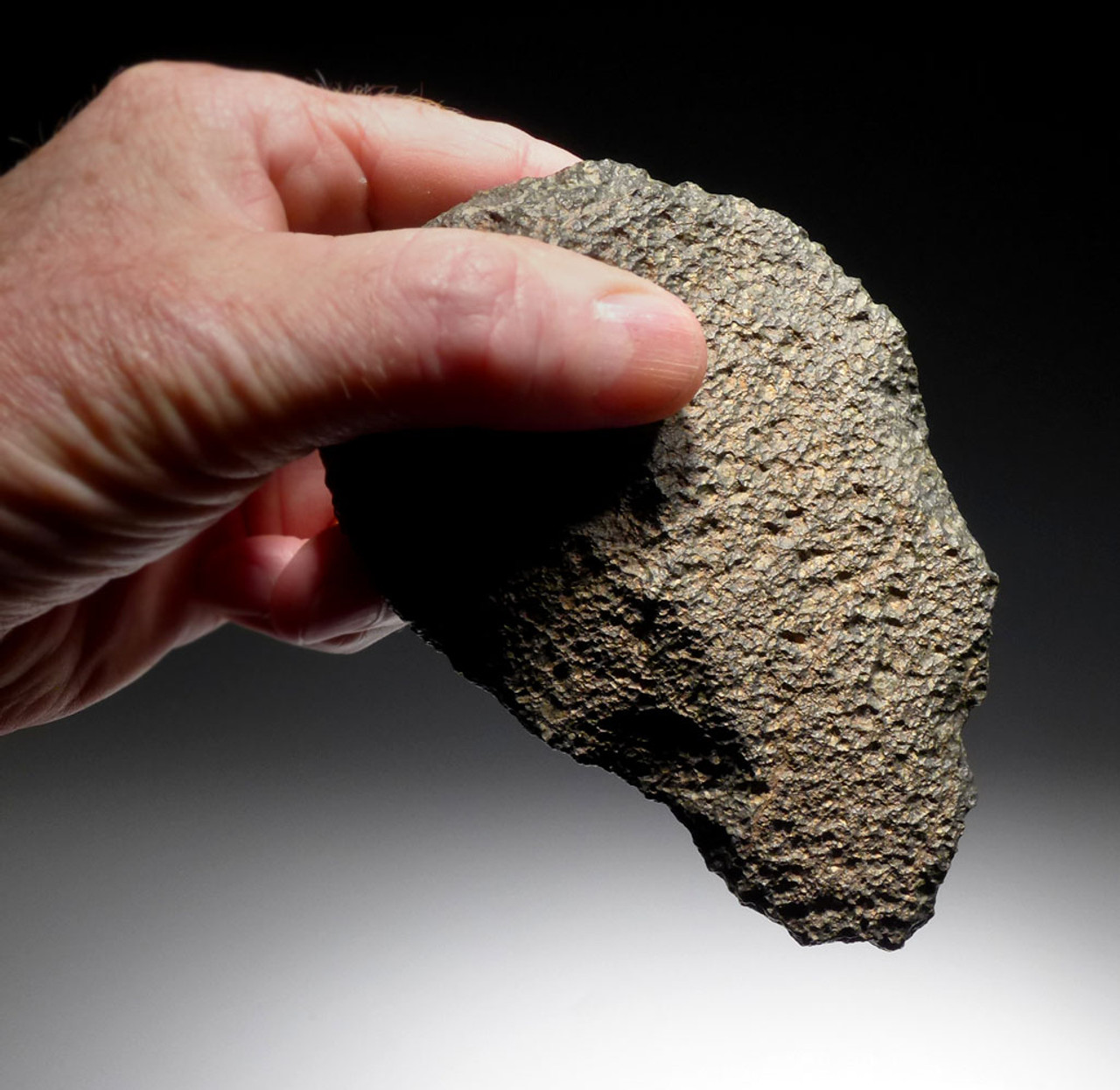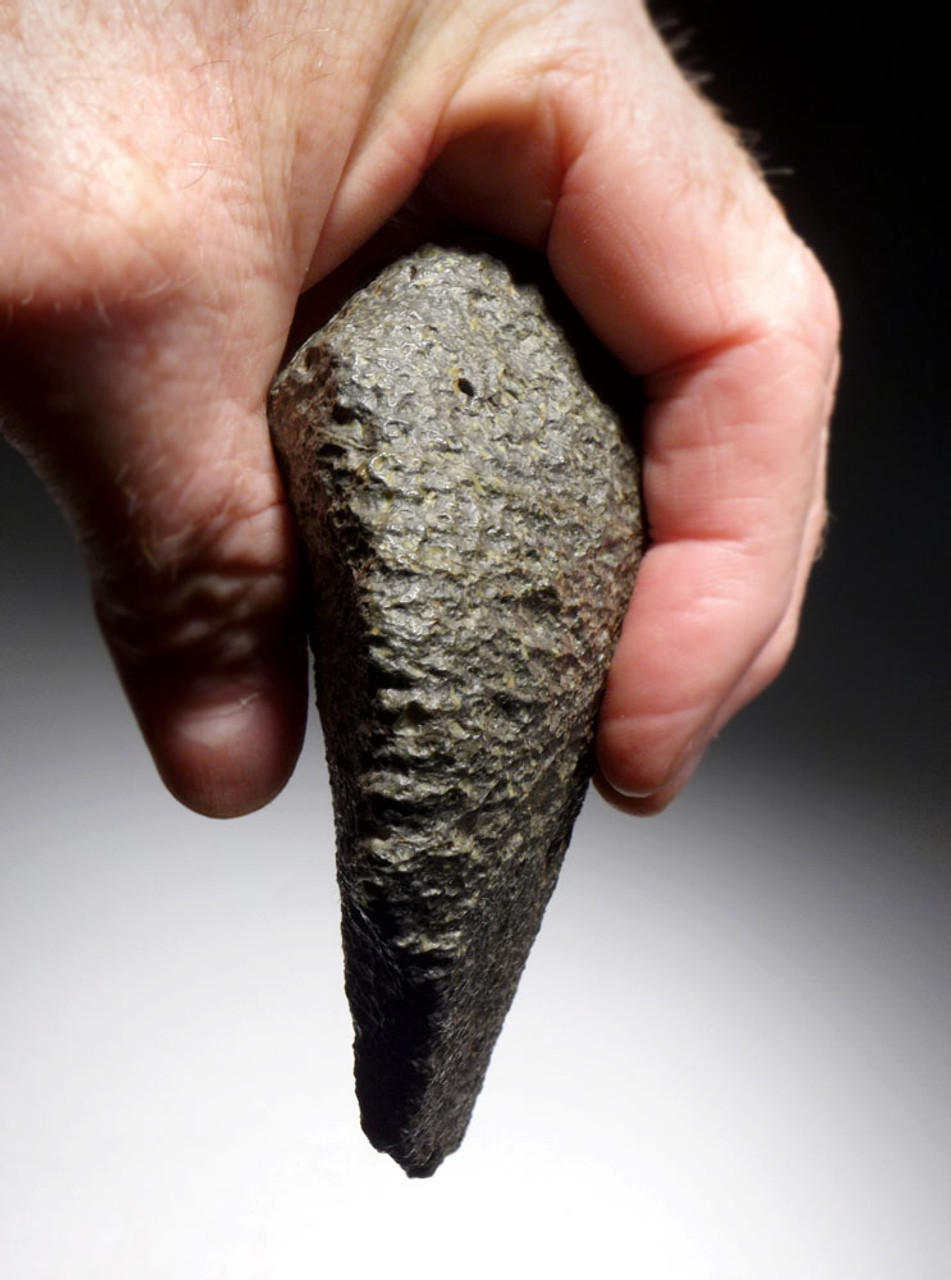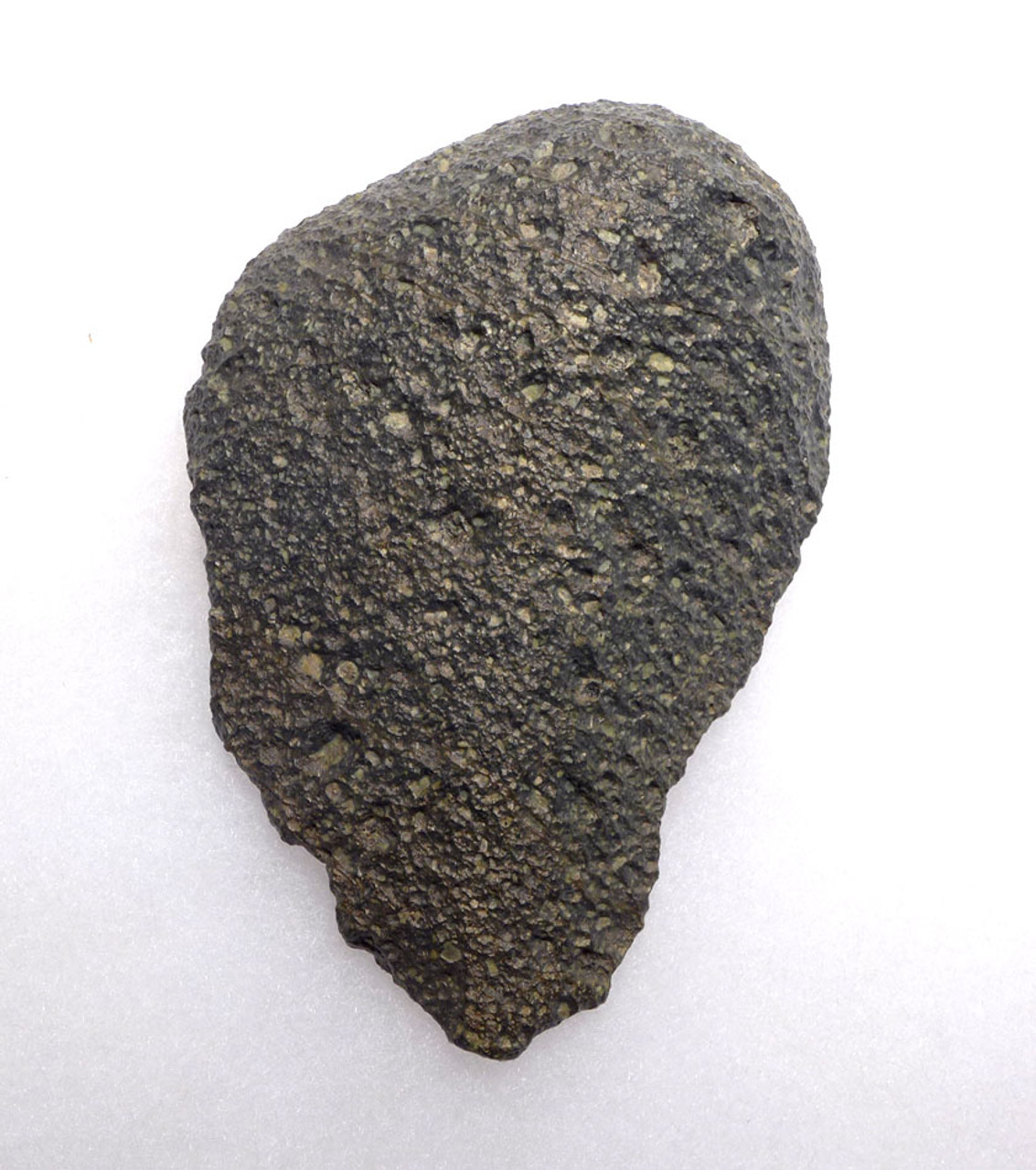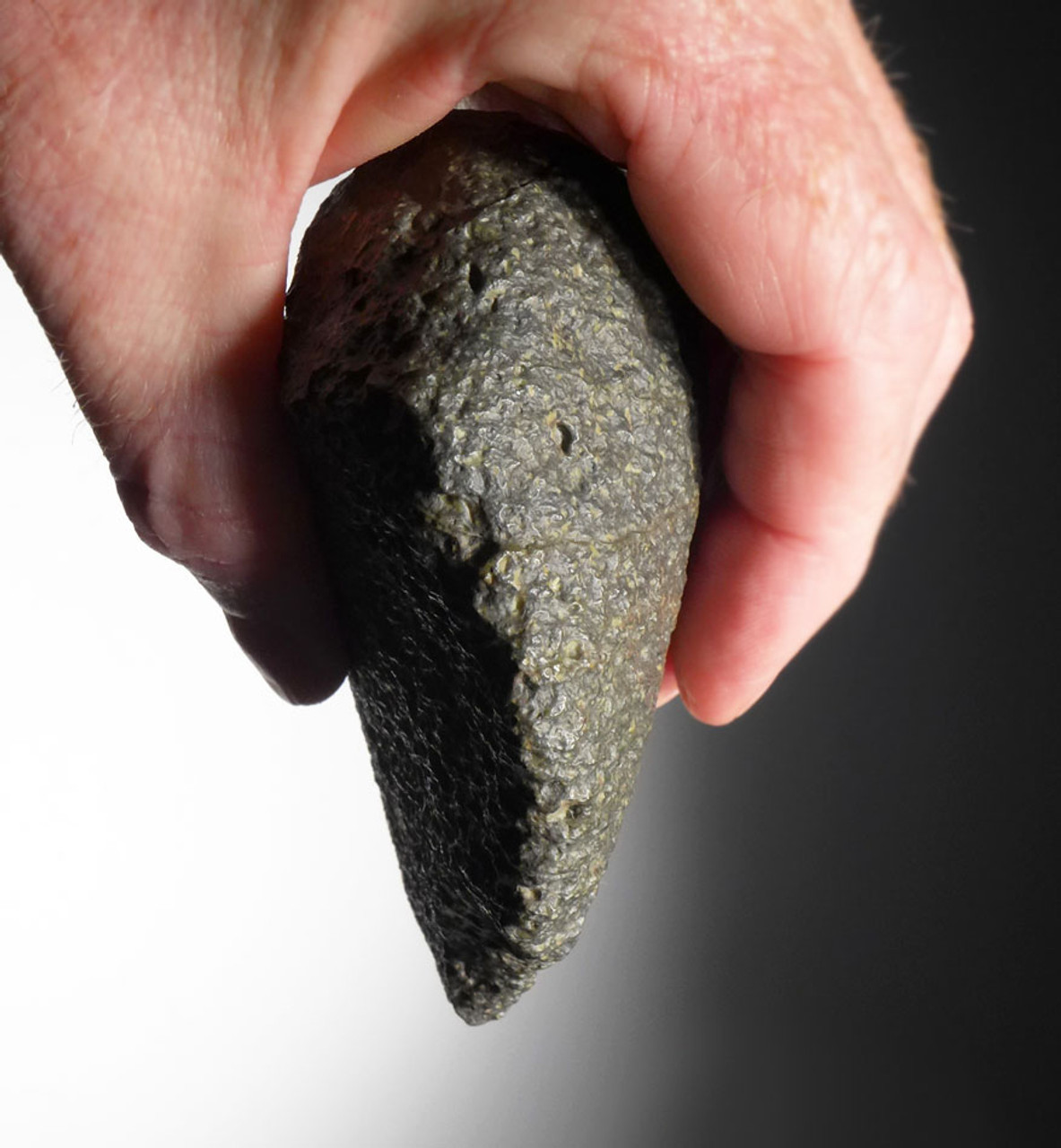Product Description
This is a classic OLDOWAN PEBBLE CHOPPER AXE found in the south central Sahara Desert. This genuine stone tool artifact is a perfect candidate for demonstrating the earliest primary human stone tool of the Oldowan Tradition of Africa's Lower Paleolithic Period. It is made from an unusual (and BEAUTIFUL!) vesicular basalt found in the region and famously used in the Tenerian Neolithic grinding mills of a much later era. The volcanic stone of this pebble axe has holes filled with desert sediment testifying to its authenticity. There is a SPECTACULAR wind erosion feature creating a lustrous appearance, called "desert varnish", from millennia of exposure to the Saharan wind. Designed for the left hand, it is just an incredible tool to hold and not only fits in the hand perfectly but it has a flaked area for the thumb. A masterfully made pointed end shows progressive thought in its design - the precursor to the almond-shaped hand axes that would later emerge in the future. The grip is perfect and the round, natural outside makes for a very comfortable grip. Workmanship and form is TRULY MUSEUM QUALITY. This offering poses a rare opportunity to own an AUTHENTIC example of the first known tool type made by humans - a window into the mind and design thought process of our earliest ancestors. African Oldowan pebble chopper axes are extremely rare and seldom found on the public market
HISTORY
Oldowan pebble tools are THE FIRST recognized tools invented by the earliest of primitive humans from Africa. These tools are seldom seen in private collections or public exhibits. Oldowan sites exist in numerous regions of the continent but it takes a very knowledgeable collector to be able to weed out all the naturally-occurring rocks that litter the ground from an actual pebble tool specimen. As the origin of humanity and as the earliest of tool technologies, this African Oldowan specimen poses a very important potential addition to any advanced collection of Paleolithic artifacts. It was made by the African Homo erectus known as Homo ergaster. African pebble tools are not common on the market compared to their much later Acheulian relatives. This specimen is part of a very limited collection we acquired. Despite the fact that there are probably more Oldowan tools in Africa compared to the European specimens we offer, very few African pebble tools are collected or available for public acquisition.
No one can doubt the importance that pebble tools hold in the history of human development. Their very emergence in Africa nearly two million years ago allowed the earliest humans to butcher animals for their meat - the needed nourishment that allowed humans to survive and flourish to one day populate and rule the earth.
 US DOLLAR
US DOLLAR
 EURO
EURO
 AUSTRALIAN DOLLAR
AUSTRALIAN DOLLAR
 CANADIAN DOLLAR
CANADIAN DOLLAR
 POUND STERLING
POUND STERLING
























